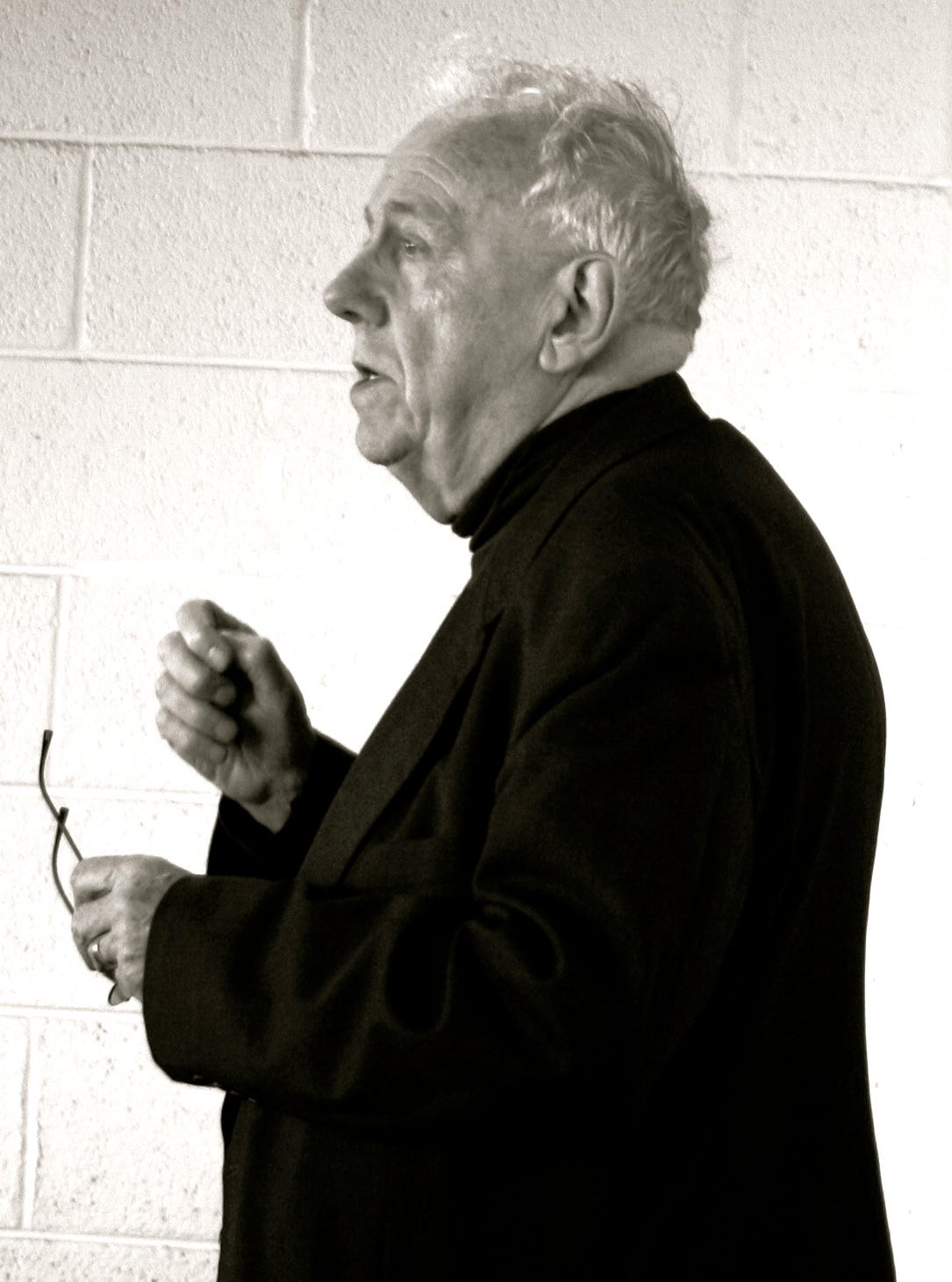The American Dream – indeed the dream of much of the world – isn’t working for the younger generations, so we’re told. Nothing’s working for them. Housing is too expensive to rent, a down payment out of reach for those hoping to buy. Jobs are no longer “steady”, no longer “well paid”. One result is this: Stoicism can set in, resignation, deflation, depression. Another is YOLO.
I’m a baby boomer, or just Boomer in contemporary speech, so I had to look up that acronym (thank you, all you Boomers who built the internet and much of its capabilities for sharing knowledge). It stands for You Only Live Once. What’s the effect? Writing in the opinion pages of the New York Times, Jessica Grose wondered: “[D]o they want to tear it all down and go full YOLO nihilist?”
One sort of nihilist might turn hedonist, spend the money while it lasts and wait for the Bank of Mom and Dad to get a new controlling shareholder. Another sort might take action, take revenge or demand reparations, tear down the barricades, rip up the institutional constraints that embed power in people like … well … me.
But Grose (2025) didn’t consider another plausible outcome: YOYO: You’re On Your Own. Jerked around on a string, perhaps, with the finger holding the string passed from one external force to another, and another.
“You’re On Your Own” captures what a lot of folks my age felt when we, too, were in our 20s. I could begin a long defence of Boomers, of course. There was no Bank of Mom and Dad then. No nest egg waiting. No internet. No iPhone, either, containing the wisdom of the world in my pocket. No, just a third-hand leather briefcase, its sidewalls misshapen by years of lying unwanted in a damp, mouldy basement that Dad, a YOYO carpenter, had turned into a bedroom for a customer.
Having that dilapidated object helped. It was so distended it could carry all the books and papers I needed to transport to and from the classes I attended each day at university. I might have used a backpack, but that would have cost money, which I didn’t have. But I considered myself lucky. Mom and Dad had never even imagined university after growing up, in YOYO circumstances, in the Great Depression and then being shuffled directly into the Second World War, forgoing the pleasures of any relatively carefree YOLO time.
So, no, I won’t make such a rebuttal to the claims of Gen Z-ers, millennials, or even Gen X-ers (the generation of Elon Musk – the richest and most famous X-man). We did have the life-long benefit of relative peace and prosperity, of being able to work and save. Many of the costs that come with being old didn’t hit us. Yet. The generation before us – the non-bank of Mom and Dad – either died in the war or died a lot younger than we will, and there were a lot of our generation around to care for any of those who survived long enough to require 24/7 live-in care.
But that’s not why I’m writing this. My point here is philosophical, one that’s central to political theory, and therefore to how we govern.
YOLO and YOYO share a characteristic: Both involve thinking of ourselves primarily, even exclusively, as individuals. And the central element of society – any society – is the relative unimportance of the individual. Consider:
I pledge allegiance to the flag of the United States of America and to the republic for which it stands, one nation, under God, indivisible, with liberty and justice for all.
With my other classmates – in those days, we were all American citizens; no longer! – I recited those words every day in school, standing hand-on-heart, looking at that symbol hanging on a pole in the corner. It was only many years later that the contradiction sank in. Liberty for most requires justice – of the constraining type – for some. Liberty for most, however, doesn’t mean that most of us are free to do whatever we want. Freedom involves not being free.
The concept of “society” implies an ordering of relationships between people. Freedom of the individual demands of society its opposite – in the extreme the incarceration and perhaps execution of (some) individuals. But even avoiding incarceration involves obeying the rules of society, upholding its norms and standards. You’re not free. Not completely.
“You’re On Your Own” is just not true. You may just not like the ones you’re with, or how you’re required to act when you’re with them.
“You Only Live Once” is true. But it doesn’t give you the liberty to live as you wish.
In the Western tradition, the focus on the individual in political theory traces its roots at least as far back as Aristotle. It went into hiding for a while but revived due to the intellectual efforts of Thomas Aquinas, and flourished only with Enlightenment thinkers, who wrested attention in politics back from both the state and the church and onto the individual.
One product of that contest was the American Revolution: We hold these truths to be self-evident: that all men are created equal.
Another was the French Revolution and the terror that followed, a demonstration that for political order to persist in democratic practice, liberté cannot be separated from fraternité – they are a duality not a dualism, as Giddens (1984) taught us – and that égalité does not mean simply equal outputs or access to equal inputs. It is a complex concept, with a lot of interdependent moving parts. For order to be maintained, we need to adjust constantly between the poles of liberty and justice, moderate the desire for freedom against the imperatives of order. We’ll make mistakes along the way. We’ll try to fix them and make other mistakes, or even the same ones over again.
What we cannot have, not really, not sustainably over time, is single set of rules, but instead modifications, adjustments, negotiating – feeling – our way through the thickets of events beyond any society’s or any individual’s control. Tolerance, up to a point. Then check, adjust, reset in part, move on. This sounds a lot like political liberalism, at least in European usage of the term.
Maybe Aristotle wasn’t a rigid as his writings are often understood. Maybe they are merely one of those adjustments that come along, in his case in response to the rigidity of Plato’s view of social order.
The philosopher Alasdair MacIntyre, who died a few weeks ago, discussed this in his most influential book, After Virtue. Aristotle set out to give “an account of the good which is at once local and particular, located in and partially defined by the characteristics of the polis – and yet also cosmic and universal” (MacIntyre, 1981, p. 139). MacIntyre thus interprets Aristotle as arguing that political order requires attending to the individual, but within society, and with societies needing to interact with and accommodate each other. MacIntyre’s book did much to revive discussion of virtue and Aristotle in 20th century political philosophy.
MacIntyre’s own stance is now often viewed on the political right as “postliberal”, against, even vehemently, the classical liberalism of David Hume or even the qualified version of John Stuart Mill. But an obituary (Pinkoski, 2025) located MacIntyre’s thinking as a reminder of the order side of this equation – society – as well as the freedom side – the individual. We may thus read both Aristotle and MacIntyre as correcting, and maybe over-correcting, the prevailing view of their times.
On this view – their views – YOLO and YOYO are both mistakes. Instead, there’s WIIT. We’re In It Together. Let’s muddle through.
Giddens, A. (1984). The Constitution of Society. Cambridge: Polity Press.
Grose, J. (2025, June 11). No Home, No Retirement, No Kids: How Gen Z-ers See Their Future. Opinion contribution to the New York Times. Retrieved from https://www.nytimes.com/2025/06/11/opinion/gen-z-american-dream.html
MacIntyre, A. (1981). After Virtue: A study in moral theory. London: Duckworth.
Pinkoski, N. (2025, May 23). Postliberalism’s Reluctant Godfather: Obituary of Alasdair MacIntyre. Contribution to Compact. Retrieved from https://www.compactmag.com/article/postliberalisms-reluctant-godfather
![How to govern [not like that]](https://substackcdn.com/image/fetch/$s_!emEQ!,w_80,h_80,c_fill,f_auto,q_auto:good,fl_progressive:steep,g_auto/https%3A%2F%2Fsubstack-post-media.s3.amazonaws.com%2Fpublic%2Fimages%2Fa9d7f587-4c16-42f0-9526-b00edc0ab4c8_155x155.png)
![How to govern [not like that]](https://substackcdn.com/image/fetch/$s_!Te2X!,e_trim:10:white/e_trim:10:transparent/h_72,c_limit,f_auto,q_auto:good,fl_progressive:steep/https%3A%2F%2Fsubstack-post-media.s3.amazonaws.com%2Fpublic%2Fimages%2F51c6c618-ff5a-481b-b4e2-28047c606ca8_990x369.jpeg)

![How to govern [not like that]](https://substackcdn.com/image/fetch/$s_!emEQ!,w_36,h_36,c_fill,f_auto,q_auto:good,fl_progressive:steep,g_auto/https%3A%2F%2Fsubstack-post-media.s3.amazonaws.com%2Fpublic%2Fimages%2Fa9d7f587-4c16-42f0-9526-b00edc0ab4c8_155x155.png)



Don, the way you weave the deep philosophical notes with humour and colloquialism is a pleasure to read! I am of the WIIT mindset, have always been, YOYO and YOLO feel too lonely a perspective. Write on!